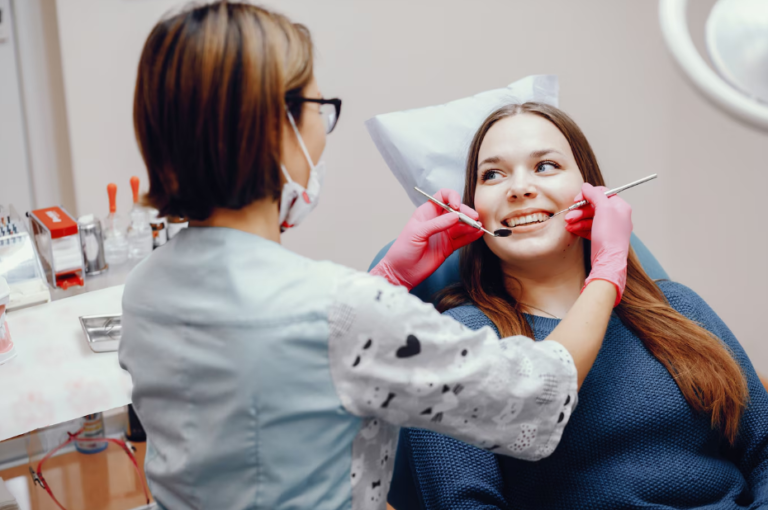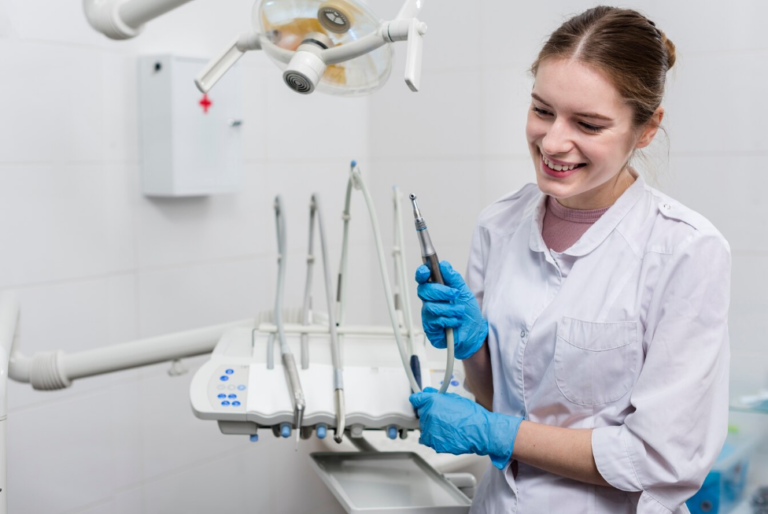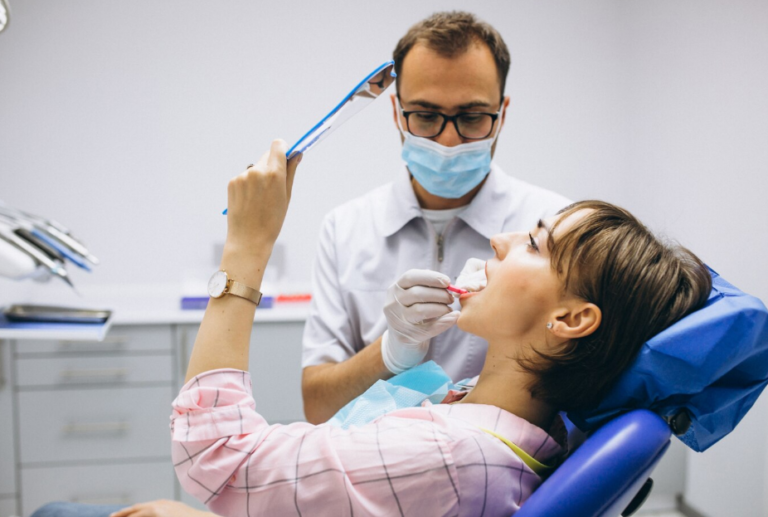Finding a 24/7 Emergency Dentist in Chicago: Your Urgent Dental Care Guide
Understanding Dental Emergencies in Chicago
What Qualifies as a Dental Emergency?
So, what exactly counts as a dental emergency? It’s more than just a minor toothache. A true dental emergency involves situations that need immediate attention to alleviate severe pain, stop ongoing bleeding, or save a tooth. Think of it this way: if you delay treatment, could it lead to more serious health problems or even tooth loss? If the answer is yes, it’s likely an emergency. Here are a few examples:
- Uncontrolled bleeding in the mouth
- Severe pain that can’t be managed with over-the-counter medication
- A knocked-out tooth
- A serious infection or abscess
When to Seek Immediate Dental Care
Knowing when to head straight to an emergency dentist in Chicago can save you a lot of trouble. Don’t wait if you’re experiencing any of the following:
- A knocked-out tooth: Time is of the essence! The sooner you get to a dentist, the higher the chance of saving the tooth.
- Severe, persistent toothache: This could indicate a serious infection that needs immediate treatment.
- Significant swelling in your mouth or face: This could be a sign of an abscess, which can spread quickly and become dangerous.
It’s always better to err on the side of caution. If you’re unsure whether your situation is an emergency, call an emergency dentist. They can assess your symptoms and advise you on the best course of action.
Distinguishing Dental Emergencies from ER Visits
It’s important to know when to go to the emergency room versus an emergency dentist. While both can provide urgent care, they handle different types of problems. The ER is best for:
- Trauma involving other parts of your body (like a head injury along with a broken tooth)
- Severe, uncontrollable bleeding that doesn’t stop after applying pressure
- Difficulty breathing or swallowing
For issues isolated to your teeth and gums, an emergency dentist is usually the better choice. They have the specialized equipment and knowledge to address dental problems quickly and effectively. Here’s a quick comparison:
| Situation | Best Place to Go |
| Knocked-out tooth | Emergency Dentist |
| Severe toothache | Emergency Dentist |
| Facial swelling | Emergency Dentist |
| Jaw fracture | Emergency Room |
| Uncontrollable bleeding | Emergency Room |
| Difficulty breathing | Emergency Room |
Finding a 24/7 Emergency Dentist Chicago
Dental emergencies don’t wait for convenient hours, and neither should your access to care. Luckily, Chicago has options for finding a dentist available around the clock. It might take a little digging, but knowing where to look can save you a lot of pain and stress.
Locating Available Emergency Dental Services
Finding a 24/7 emergency dentist in Chicago often starts with a quick online search. Use keywords like “24-hour dentist Chicago” or “emergency dental care near me.” Many dental practices that offer emergency services will clearly state this on their websites. Don’t hesitate to call several offices to confirm their availability and the types of emergencies they handle. Some hospitals also have dental clinics or can refer you to on-call dentists. Remember to check online reviews to get a sense of the quality of care provided.
The Importance of Same-Day Appointments
When you’re dealing with a dental emergency, time is of the essence. A same-day appointment can make all the difference in saving a tooth, alleviating severe pain, or preventing further complications. Many emergency dental clinics in Chicago prioritize same-day appointments for patients experiencing urgent issues. When you call to inquire, be sure to emphasize the severity of your situation to increase your chances of being seen promptly. Some clinics even offer online scheduling for emergency cases, which can be a convenient option.
Contacting a Chicago Emergency Dentist
Once you’ve identified a potential emergency dentist, the next step is to contact them immediately. Be prepared to describe your dental problem in detail, including the location and intensity of the pain, any recent injuries, and any relevant medical history. This information will help the dentist assess the urgency of your situation and provide appropriate advice. Don’t forget to ask about their fees, payment options, and insurance acceptance policies. If you’re experiencing extreme pain or anxiety, let the dentist know so they can take steps to make you more comfortable. Also, if you think you might need something like wisdom teeth removal, it’s good to mention that upfront.
Common Urgent Dental Issues and Solutions
Managing Severe Tooth Pain
Okay, so you’ve got a killer toothache. First things first, don’t panic! Rinse your mouth with warm salt water. This can help clean the area and reduce inflammation. Over-the-counter pain relievers like ibuprofen or acetaminophen can also provide temporary relief. If the pain is unbearable or accompanied by swelling, it’s time to call an emergency dentist. Don’t try to tough it out; it could be a sign of something serious.
Addressing Chipped or Broken Teeth
Chipped a tooth? Bummer. Find the broken piece if you can, rinse it off, and store it in milk or saliva. This can help the dentist if they can reattach it. Rinse your mouth with warm water and apply a cold compress to your face to reduce swelling. A chipped tooth might not seem like a huge deal, but it can have sharp edges that irritate your mouth, and it leaves the tooth vulnerable to infection. A broken tooth is even more urgent. Call your dentist ASAP. If you’re considering options like dental implants in Chicago down the road, fixing the initial break is still the first step.
Handling Lost Fillings or Crowns
Losing a filling or crown can be a real pain, literally. If you lose a filling, try to keep the area clean. You can use over-the-counter dental cement to temporarily fill the space until you can see a dentist. If a crown comes off, try to gently clean it and see if you can temporarily reattach it with dental adhesive (available at most drugstores). Don’t use super glue! If you can’t reattach it, keep the crown safe and bring it with you to your appointment. Leaving the exposed tooth unprotected can lead to sensitivity and further damage.
It’s important to remember that these are just temporary solutions. You need to see a dentist as soon as possible to get the proper treatment. Ignoring these issues can lead to more serious problems down the line, like infections or the need for more extensive (and expensive) dental work.
Preparing for Your Emergency Dental Visit
It’s understandable to feel stressed when facing a dental emergency. Knowing what to do beforehand can make the experience smoother and help your dentist in Chicago provide the best possible care. Here’s how to prepare:
What to Do Before Arriving at the Clinic
Before rushing to the emergency dentist, take a few moments to assess the situation and take some basic steps:
- Control Bleeding: If you’re bleeding, apply gentle pressure to the area with a clean cloth. Change the cloth every so often. If bleeding doesn’t stop after a while, it’s time to go.
- Rinse Your Mouth: Gently rinse your mouth with warm water. This helps remove debris and can soothe the area.
- Save Any Broken Pieces: If a tooth is chipped or broken, carefully save any pieces. Your dentist might be able to reattach them.
- Manage Pain: Over-the-counter pain relievers like ibuprofen or acetaminophen can help manage pain. Follow the dosage instructions on the label.
It’s a good idea to call the dentist’s office before you head over. This gives them a heads-up and allows them to prepare for your arrival. They might also provide specific instructions based on your situation.
Information to Provide Your Emergency Dentist
Being prepared with information will help the dentist quickly understand your situation. Here’s what to tell them:
- Your Medical History: Be ready to share any relevant medical conditions, allergies, and medications you’re taking. This information is important for safe treatment.
- Details About the Emergency: Explain what happened, when it happened, and the symptoms you’re experiencing. Be as specific as possible.
- Pain Level: Describe your pain level using a scale of 1 to 10. This helps the dentist assess the severity of the problem.
- Insurance Information: Have your dental insurance card ready, if applicable. This will streamline the billing process.
Understanding Emergency Dental Treatment Procedures
Emergency dental treatments can vary depending on the issue. Here are some common procedures you might encounter:
- Pain Relief: The first priority is usually to alleviate pain. This might involve medication or local anesthesia.
- Tooth Repair: Chipped or broken teeth might be repaired with fillings, crowns, or bonding.
- Extraction: In severe cases, a tooth extraction might be necessary. This is usually a last resort.
- Infection Treatment: Infections might require antibiotics and drainage of any abscesses.
| Procedure | Description of the course.
Financial Considerations for Emergency Dental Care
Navigating Dental Insurance for Emergencies
Dental insurance can be a lifesaver when unexpected dental emergencies pop up. Most plans do offer some level of coverage for emergency dental care, but it’s important to understand the specifics of your policy. Check your plan details for information on emergency services, co-pays, deductibles, and annual maximums. Some plans might require pre-authorization for certain procedures, even in an emergency, so it’s a good idea to familiarize yourself with these rules beforehand. Don’t hesitate to call your insurance provider to clarify any questions you have about your coverage.
Payment Options for Urgent Dental Services
Not everyone has dental insurance, and even those who do might face out-of-pocket costs. Fortunately, many emergency dental clinics offer a range of payment options to make care more accessible.
Here are some common payment methods:
- Cash, Credit, and Debit Cards: Most clinics accept these standard forms of payment.
- Payment Plans: Some clinics offer in-house payment plans, allowing you to spread the cost of treatment over several months.
- Third-Party Financing: Companies like CareCredit specialize in healthcare financing and can provide loans or credit lines for dental work.
- Dental Savings Plans: These aren’t insurance, but they offer discounts on dental services at participating providers.
It’s always a good idea to discuss payment options with the dental clinic before starting treatment. They can help you understand the costs involved and find a payment solution that works for your budget.
Affordable Emergency Dentist Chicago Options
Finding affordable emergency dental care in Chicago is possible with a little research. Here are some strategies to consider:
- Compare Prices: Call several clinics to inquire about their fees for common emergency procedures.
- Community Dental Clinics: These clinics often offer lower-cost care to underserved populations.
- Dental Schools: Dental schools provide treatment at reduced rates, as students gain experience under the supervision of licensed dentists.
- Ask About Discounts: Some clinics offer discounts for cash payments, students, or seniors.
Remember, neglecting a dental emergency can lead to more serious and costly problems down the road. Addressing the issue promptly, even if it requires some financial planning, is usually the best course of action.
Post-Emergency Dental Care and Follow-Up
Aftercare Instructions for Emergency Procedures
So, you’ve just left the emergency dentist in Chicago after dealing with a painful situation. What now? Following the aftercare instructions is super important for a smooth recovery. Your dentist will give you specific instructions based on what procedure you had. This might include things like:
- Taking pain medication as prescribed.
- Use a special mouthwash to keep the area clean.
- Eating soft foods for a few days.
- Avoiding smoking or alcohol.
Don’t skip any steps, even if you start feeling better. Ignoring these instructions can lead to complications and more pain down the road.
Scheduling Follow-Up Appointments
Just because the emergency is over doesn’t mean you’re done with dental care. It’s really important to schedule a follow-up appointment with your regular dentist, or the emergency dentist in Chicago if you don’t have one. This allows them to check on how you’re healing and address any underlying issues that might have caused the emergency in the first place. Think of it like this:
The emergency visit was like putting a bandage on a wound. The follow-up is about making sure the wound heals properly and doesn’t get infected. It’s about long-term dental health, not just quick fixes.
Preventative Measures to Avoid Future Emergencies
Nobody wants to go through another dental emergency. The best way to avoid them is to take good care of your teeth every day. Here are some things you can do:
- Brush your teeth twice a day with fluoride toothpaste.
- Floss daily to remove plaque and food particles.
- See your dentist for regular checkups and cleanings.
- Wear a mouthguard if you play sports.
Also, be mindful of what you eat. Avoid chewing on hard things like ice or hard candy, which can chip or break your teeth. Taking these simple steps can go a long way in keeping your smile healthy and avoiding future trips to the emergency dentist in Chicago.
Why Choose a Dedicated Emergency Dentist in Chicago
When a dental crisis hits, you want someone who’s seen it all and knows exactly what to do. That’s where a dedicated emergency dentist in Chicago comes in. They’re not just general dentists squeezing you in; they’re focused on urgent care, equipped for it, and ready to handle whatever dental disaster you’re facing.
Expertise in Urgent Dental Situations
Emergency dentists deal with urgent cases day in and day out, making them highly skilled at diagnosing and treating problems quickly and effectively. They’ve seen everything from severe infections to traumatic injuries, so they’re prepared for pretty much anything. Regular dentists might not have the same level of focused experience in these specific situations. It’s like going to a specialist versus a general practitioner – you want the expert when it really matters.
Access to Specialized Emergency Equipment
Emergency dental clinics often have equipment that a general practice might not, like advanced imaging for quick diagnoses or specialized tools for immediate treatment. This access can make a huge difference in the speed and quality of care you receive. Think about it: if you need a broken tooth extracted ASAP, you want a place that’s ready to do it right then and there, not a place that has to refer you somewhere else.
Patient Comfort During Stressful Times
Dental emergencies are stressful, plain and simple. A dedicated emergency dentist and their team understand this and are trained to provide compassionate care in a calming environment. They know how to explain things clearly, offer reassurance, and make you as comfortable as possible during a difficult time. They’re also more likely to offer sedation options if needed to help you relax during treatment.
Dealing with a dental emergency is never fun, but knowing you’re in the hands of professionals who specialize in urgent care can make a world of difference. They’re equipped, experienced, and ready to help you get back to smiling as quickly as possible.
Wrapping Things Up
So, there you have it. Dealing with a dental emergency in Chicago can feel pretty scary, especially when it happens out of nowhere. But remember, you’ve got options. Knowing where to look and what to do can make a huge difference. Don’t just sit there in pain; get help. There are plenty of places ready to see you, even in the middle of the night or on a holiday. Your teeth will thank you for it, and you’ll be back to feeling normal in no time.






